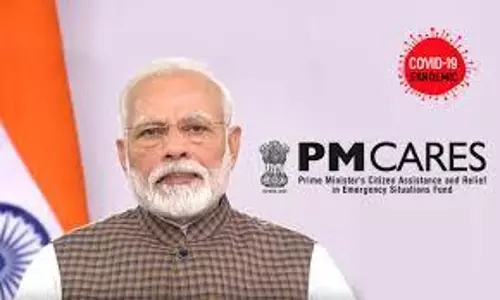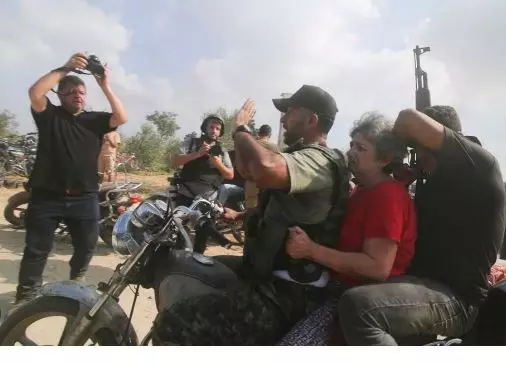
Reuters, AP, The New York Times, CNN reject allegation of prior knowledge of Hamas attack
text_fieldsAs the Israeli government demanded explanations from Reuters, AP, The New York Times, and CNN regarding their alleged association with freelance photographers in Gaza and the accusation of prior knowledge of the Hamas attack on October 7, these news organizations came together to collectively reject the allegations made by a pro-Israel organization.
The allegations surfaced after pro-Israel media watchdog group HonestReporting questioned the outlets' collaboration with Gaza-based freelance photojournalists.
HonestReporting, a self-described charitable organization aiming to expose anti-Israel media bias, published an article raising concerns about the ethical implications of Gaza-based photojournalists being present in the border area breached by Hamas. The group suggested potential coordination with Hamas and questioned whether the news outlets approved of their presence inside enemy territory.
Reuters denied any prior knowledge of the attack or embedding journalists with Hamas on October 7. They asserted that the photographs published were acquired from Gaza-based freelance photographers who were at the border that morning, and Reuters staff journalists were not on the ground at the mentioned locations.
The AP also rejected allegations, stating that the first pictures they received from freelancers were taken more than an hour after the attacks began. They emphasized their role in gathering information on breaking news events worldwide, even in situations causing mass casualties.
CNN, too, distanced itself from the controversy, cutting ties with a photographer who was pictured alongside Hamas leader Yahya Sinwar. HonestReporting clarified that it was not accusing Reuters of collusion but raised ethical concerns about the association of news outlets with these freelancers.
The Israeli government, expressing utmost gravity, condemned the suggestion that journalists working with international media participated in covering the Hamas attacks. Israeli Prime Minister Benjamin Netanyahu's office went as far as labelling these journalists as accomplices in crimes against humanity, terming their actions contrary to professional ethics.
Former Israeli ambassador to the UN, Danny Danon, called for the four photojournalists to be added to the list of participants in the October 7 massacre, advocating for their elimination by Israel's security services.
The New York Times, working with one of the photojournalists in question, labelled the accusations of prior knowledge as untrue and outrageous. The newspaper defended freelance photojournalists working in conflict areas, highlighting their essential role in providing first-hand witness accounts and documenting important news.
They expressed grave concern about unsupported accusations and threats to freelancers, emphasizing the potential danger and undermining of work serving the public interest.

















